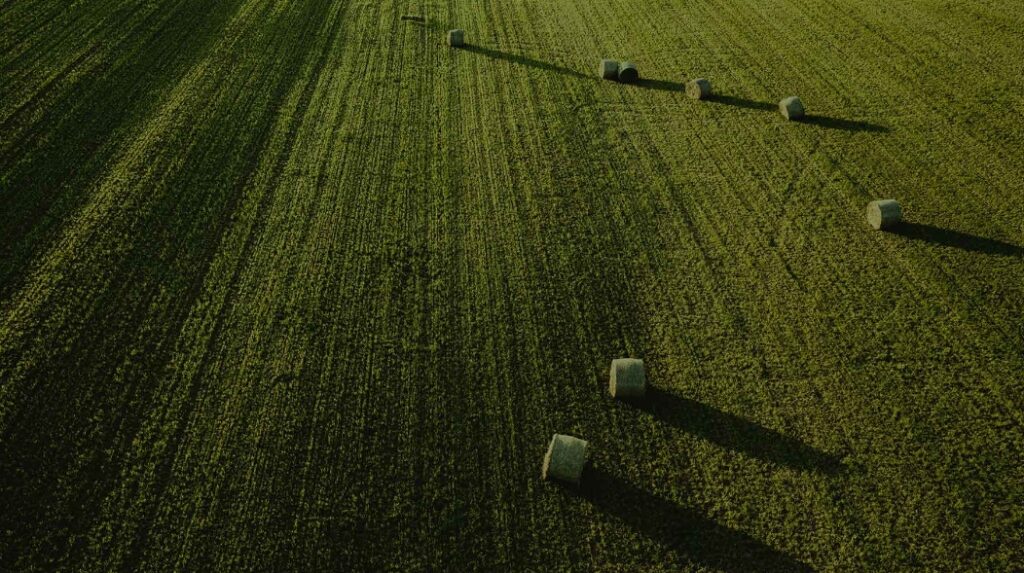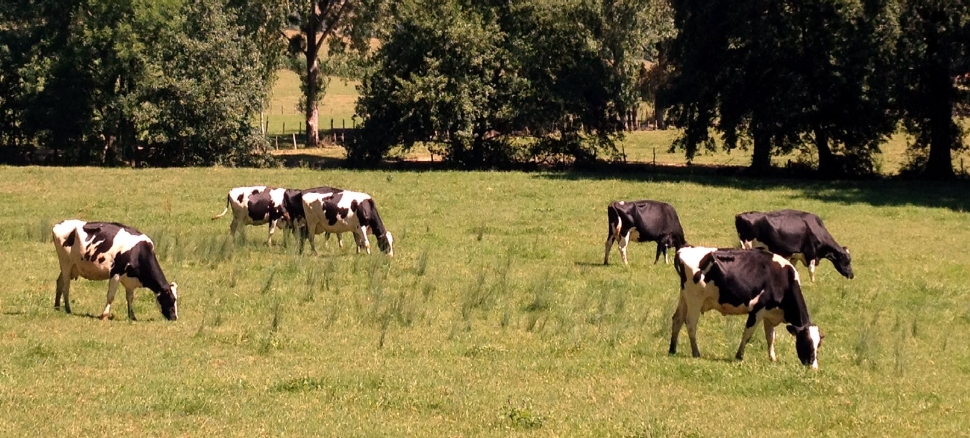
23 Jan
How will agriculture and livestock production change in Europe and Spain in 2023?
The new year has started strong, with the entry into force of the new CAP, feared for sacrificing production in favor of environmental requirements. But there are more changes. From Asaja, the registration of food contracts or the thousand times promised double tariff for electricity are pointed out as the most positive. Other rules are “to start to shake”, such as the regulation of the subscriber or the hydrological plan.
On January 1, the new CAP arrived, which will be applied during the period 2023-2027. It has taken five years to come up with legal texts with which Europe intended to promote a competitive and diversified agricultural sector to guarantee food security, support and protect the environment, climate and biodiversity, as well as strengthen the socioeconomic fabric of rural areas.
But environmental sustainability has eclipsed the rest, leaving the social objective and especially the economic one without support, according to the analysis carried out by the technical services of Asaja Castilla y León.
Despite the pandemic and the war in Ukraine, Europe persists in its Green Pact and in complying with the Farm to Fork and Biodiversity Strategies that permeate the spirit of the CAP that we are launching with the new year.
New Strategic Plan
On August 31, 2022, the European Commission approved our CAP Strategic Plan, congratulating Spain for proposing exemplary interventions and measures to achieve the aforementioned objectives, even exceeding the minimums set for the environmental objective.
In the last days of the year, different legal texts have begun to be published at the national level, a law and 18 royal decrees. Then the regional government will develop them for application in Castilla y León.
Farmers and ranchers have had to plan and sow without knowing their obligations, “in precarious”, as the agrarian organization points out.
Food Chain Law
This law, in force since December 16, 2021, postponed until the beginning of 2023 the implementation of the Registry of Food Contracts. In the last days of the year, the Royal Decree was approved that develops the register of digital food contracts in which the contracts signed with primary producers and their groups must be registered, on a mandatory basis.
This registry, in compliance with the Food Chain Law, increases the protection of primary producers and their groups, by facilitating the functions of inspection and control of commercial relations.
The registration of contracts in the registry will start on January 31, 2023, although there will be a transitional period to facilitate its gradual implementation, until it becomes mandatory, starting on June 30.
It seems impossible to stop the “huge difference” in prices between what the consumer pays and what the producer receives, but Asaja is confident that the application of the Food Chain Law will continue to take steps to achieve this.

Combined Agricultural Insurance Plan
In November, the 44th Combined Agricultural Insurance Plan was approved, which establishes all the lines of insurance whose contracting period will begin throughout the year 2023 with a line of subsidies that totals 317.7 million euros.
The plan includes the different lines of subsidies applied and the percentages established for each of them, which in total add up to 317.7 million euros.
This increase is highly relevant for farms, especially in the current context of increased production costs and higher accident rates caused by adverse weather events that have occurred during the year.
The most important novelty is the 10 percentage point increase in the base subsidy. This increase has already begun to be applied to those lines whose contracting period began on September 1, 2022.
In this way, depending on the group to which the insured belongs, between 50 and 60% of the minimum subsidy can be achieved in the most contracted modality.
Duero Hydrological Plan
Submitted to a vote, the Duero Hydrological Plan Project 2022-2027 was rejected by the members of the Demarcation’s Water Council, with a result of 42 votes against and 34 in favor.
Asaja has been one of the organizations that has voted against, refusing this approval from the outset, considering that the new Duero Hydrological Plan threatens the interests of the agricultural sector.
Other agrarian organizations, irrigation communities and the Water Council have joined this rejection. It is significant that this project defended by the Duero Hydrographic Confederation has had the support of the representatives of the hydroelectric companies, totally disconnected from the reality of the agricultural sector.
For Asaja, the modernization of irrigation is the best formula for saving water, preventing pollution from runoff and increasing the competitiveness of farms. Climate change is a reality and water plays a very important role, so today infrastructure and storage capacity for this resource are more necessary than ever.
Despite the majority rejection of the project, the Duero Hydrographic Confederation will submit the plan to the Ministry of Ecological Transition, so that, if it so decides, it can be approved as a Royal Decree.
Double electricity rate
Regarding electricity, the agrarian organization is still waiting for the Government to implement the double tariff already approved in various legal texts throughout this legislature for the agricultural sector.
In Law 30/2022, of December 23, which regulates the management system of the Common Agricultural Policy, a final provision is included that allows the owners of agricultural exploitations to take advantage of the temporary flexibility mechanisms of the supply contracts of electrical energy included in article 7 of Royal Decree-Law 18/2022 which, although it would only be in force in 2023, begins with a reason.
Asaja hopes that this new legal text will be applied and irrigators can finally benefit from a double electricity tariff that adjusts to their consumption demands, thus fulfilling a historical claim.
We also hope that the electricity marketers give the change authorizations as quickly as possible, since the law obliges them to remain with the new power for a minimum period.

Vulnerable areas
The modification of the Royal Decree on the protection of water against diffuse pollution produced by nitrates from agricultural sources proposed in 2021 by the Ministry for the Ecological Transition and the Demographic Challenge finally came to light in January 2022.
This new Royal Decree establishes much more restrictive criteria in determining both the contaminated areas, as well as those that could be contaminated if the appropriate measures are not taken, lowering the maximum limits of contamination by 25 or 50% over the current community directive.
By lowering these limits, there is the possibility that the entire territory of Castilla y León is classified as a vulnerable area, with the inconveniences and restrictions that this entails for our sector.
Asaja advocates in this matter for the concrete identification of the problem that diffuse pollution produces in order to have current power over it. Specific measures must be taken to find the root cause and control the problem.
The general measures, if they were not very ambitious, would not reverse the problem and if they are excessively drastic, as is the case, they could solve it or not, but in exchange for putting an important and strategic productive sector at risk.
The MAPA is also preparing a regulation in this line through the implementation of a new Royal Decree on sustainable nutrition of agricultural soils that will add new requirements and restrictions on fertilizing crops and greater difficulties in agricultural production.
The organization hopes that the administrations give a long period of adaptation to the sector and put at their disposal the necessary tools with which to work. It is also important that new generation fertilizers and formulations are accessible to the producer, both agronomically and economically.
Livestock regulations
At the end of the year, abundant regulations were published, among which a royal decree for the management of bovine farms stands out, which will limit the maximum size of newly installed farms. Time will tell if it will serve to stop the continuous bleeding of professionals, or on the contrary so that in other parts of the world they take over the markets that we lose.
On January 2, 2023, a royal decree comes into force that regulates the general registry of the Best Available Techniques (MTD) in livestock farms, as well as the support for the calculation, monitoring and notification of emissions in livestock. The standard establishes the structure of this registry and the minimum content of the information that farmers must communicate to the public administrations regarding the estimation of their emissions and the application of the MTD, in line with the obligations established in the royal decrees of livestock management. .
The decree on animal health and protection regulations during transport also enters into force, which repeals the previous regulations of 2016 and introduces changes in the welfare conditions of livestock and requirements for professionals, in line with the recommendations they make in this regard. community instances, within the current regulatory framework.
We must add a fourth royal decree with a series of national measures to promote a sustainable use of antibiotics in the field of species of livestock interest. The sale of antimicrobials in Spain is higher than the European average, so in the opinion of the Ministry it is necessary to urgently address their use in livestock farms.
Inspections of phytosanitary equipment (ITEAF)
In the last quarter of the year, the draft for updating the order that regulates the ITEAF in Castilla y León was published. The draft proposes to apply in our community the possibility offered by the National Royal Decree of deregistering ex officio from the Official Register of Agricultural Machinery (ROMA) the equipment for the application of phytosanitary products that have not passed the corresponding inspection or whose validity period has expired, prior communication to the interested party.
Asaja has requested that the owner of the machine be given the option of keeping it registered under his responsibility, since the Renewal Plan for agricultural machinery contemplates the scrapping of a machine in order to qualify for renewal and this would mean the exclusion of many farmers from our community compared to those of other territories where it does not apply.
Copyright © 2021 PDSConsulting Contact us: info@pdsconsulting.co.uk.